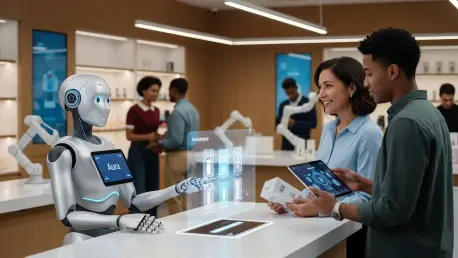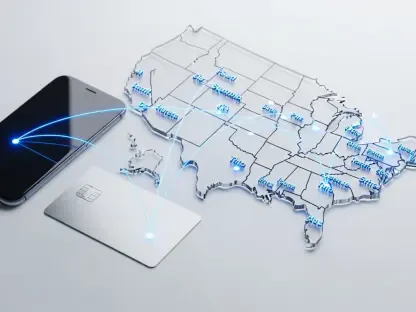I’m thrilled to sit down with Zainab Hussain, our esteemed retail expert and e-commerce strategist with deep expertise in customer engagement and operations management. With years of experience helping brands transform their customer experience (CX), Zainab offers invaluable insights into the evolving landscape of contact center management and hospitality innovation. In this interview, we dive into the significance of industry events, the transformative power of technology in customer service, and the strategic partnerships driving award-winning results. We also explore the role of AI in shaping seamless customer journeys and the challenges of revamping CX operations in competitive sectors like hospitality.
How do major industry events contribute to shaping customer experience strategies for companies in sectors like hospitality?
These events are crucial because they bring together professionals from all levels—frontline agents to executives—to share knowledge, showcase innovations, and discuss real-world challenges. They’re a melting pot of ideas where companies can learn about cutting-edge technologies and strategies that are working for others. For hospitality, where guest satisfaction is everything, attending such expos means staying ahead of trends, networking with solution providers, and gaining inspiration to elevate service standards. It’s not just about showing up; it’s about walking away with actionable insights to improve how you connect with customers.
What are some of the key transformations happening in customer service within the hospitality industry today?
Hospitality is undergoing a massive shift toward personalized, tech-driven experiences. Companies are moving away from traditional call centers to integrated contact centers that use AI and data analytics to anticipate guest needs. This means faster response times, tailored interactions, and a focus on creating memorable moments for guests. It’s about turning every touchpoint—whether it’s a booking inquiry or a post-stay follow-up—into an opportunity to build loyalty. The emphasis is on using technology not just for efficiency, but to make guests feel valued and understood.
How is AI changing the way hospitality brands interact with their customers?
AI is a game-changer because it allows brands to handle interactions at scale while keeping them personal. Think chatbots that resolve simple queries instantly or predictive analytics that suggest room upgrades based on a guest’s past preferences. AI helps streamline operations by automating routine tasks, freeing up human agents to tackle complex issues with empathy. It’s also about creating seamless journeys—AI can track a guest’s interactions across channels and ensure consistency, whether they’re calling, texting, or using an app. The result is a smoother, more intuitive experience that feels effortless to the customer.
What kinds of technology tools are proving most effective in enhancing customer interactions in this space?
Tools like AI-powered chatbots, omnichannel platforms, and customer relationship management systems are leading the charge. Chatbots can handle basic requests 24/7, while omnichannel platforms ensure a guest’s conversation picks up right where it left off, no matter the medium. Advanced analytics also play a big role by providing insights into customer behavior, helping brands anticipate needs before they’re even expressed. These tools don’t just improve interactions; they transform the entire experience by making it more proactive and connected.
Can you share some insights on how strategic partnerships between tech providers and hospitality brands drive better customer outcomes?
Partnerships are essential because they combine deep industry knowledge with specialized tech expertise. When a hospitality brand teams up with a tech provider, they gain access to solutions tailored to their unique challenges, like managing high call volumes or personalizing guest interactions. The tech partner often brings scalable tools and best practices, while the brand provides context on what their customers truly value. Together, they can innovate faster, test new approaches, and deliver results—like turning a standard call center into a hub for memorable guest experiences—that neither could achieve alone.
What are some of the biggest challenges hospitality companies face when overhauling their customer experience operations?
One of the biggest hurdles is balancing technology with the human touch—hospitality thrives on personal connection, and over-relying on automation can alienate guests. There’s also the challenge of integrating new systems with legacy ones, which can be costly and time-consuming. Resistance to change from staff is another issue; training teams to adopt new tools while maintaining service quality takes effort. Plus, there’s always the risk of data privacy concerns when handling sensitive guest information. Overcoming these requires clear communication, phased rollouts, and a focus on why the changes matter for both employees and guests.
How do hospitality brands define and measure what ‘best-in-class’ customer experience looks like for their guests?
‘Best-in-class’ often means exceeding expectations at every step—making guests feel welcomed, heard, and valued, whether they’re booking a room or resolving an issue. It’s about consistency, speed, and personalization. Brands measure this through metrics like Net Promoter Score, which gauges how likely guests are to recommend them, as well as response times and resolution rates. Guest feedback, whether through surveys or online reviews, is also gold. Ultimately, it’s about creating moments that stick with guests long after they’ve checked out, turning one-time visitors into lifelong advocates.
What is your forecast for the future of customer experience in the hospitality industry?
I see the future of CX in hospitality becoming even more immersive and predictive, driven by advancements in AI and data integration. We’ll likely see hyper-personalized experiences where technology anticipates needs before guests even ask—like suggesting local experiences based on past trips. Voice technology and IoT will play bigger roles, enabling seamless interactions through smart devices in rooms. At the same time, the human element will remain critical; technology will enhance, not replace, the warmth of personal service. The brands that succeed will be those that blend innovation with genuine care, creating connections that feel both cutting-edge and deeply human.









